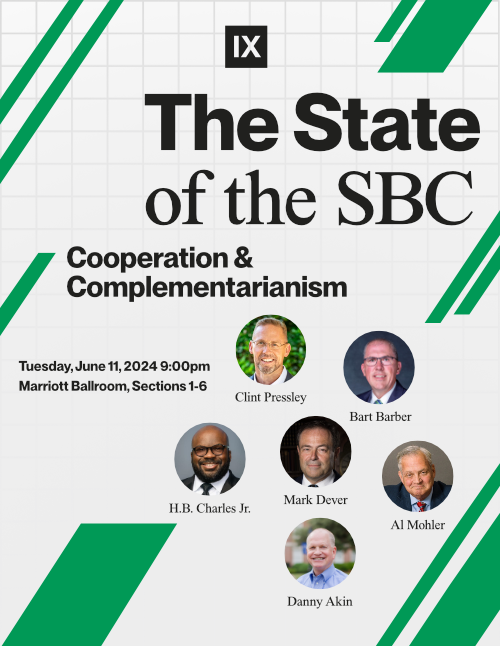Why There’s No Such Thing as African Christianity
Every generation has philosophical winds that blow across the landscape of a nation or even an entire continent. These winds often begin from an epicenter of suffering and bring about a different way of looking at life. Africa has had its fair share of these winds, and as a result missionary efforts here have had to deal with them. One question that combines the philosophical winds blowing in Africa with the world of missions is this: “Are we African Christians or Christians in Africa?”
What do I mean by this? When the first generation of indigenous leaders takes denominational power from Western missionaries, there tends to be an over-reaction. The leaders emphasize their ethnicity so much that someone listening to them may soon start thinking that the new agenda in the church should be to rid themselves of anything that smacks of the West. We must now be truly African.
This is worse when the handover of church power takes place while a country is undergoing political change from Western colonialism. The one-stringed banjo that’s played over and over again is that Africans have their own way of worship and must return to it. What we have inherited is Western Christianity, and we must now get rid of it. That becomes the popular cry: “We are African Christians.”
ONE FAITH, ONE CHURCH
Sadly, missiologists around the world sometimes capitulate to this mindset. They make a big issue of the ethnicity of the people to whom long-term and short-term missionaries are being sent. I wouldn’t be surprised if a new course in Western Bible colleges is being added: “African Christianity—What you need to know.” Strictly speaking, there is no such thing as African Christianity or Asian Christianity or Western Christianity. The Christian faith is one, and it’s portrayed for us as such in the Scriptures.
One of the greatest fights waged by the apostles was to ensure that Jews and Gentiles worshipped together in the same church despite being different in many ways. They weren’t willing to yield to the pressure of two divergent religious cultures that had become set in concrete. There was only one gospel, “one Lord, one faith, one baptism, one God and Father of all, who is over all and through all and in all” (Ephesians 4:5–6). Therefore, there was to be only one church—the Christian church.
“For in Christ Jesus you are all sons of God, through faith. For as many of you as were baptized into Christ have put on Christ. There is neither Jew nor Greek, there is neither slave nor free, there is no male and female, for you are all one in Christ Jesus” (Galatians 3:26–28). Might I also add that, in Christ, there is neither African nor Asian nor Caucasian?
Anything that brings chasms into the body of Christ should be challenged on the basis of Scripture. We are one church.
DO ANY DIFFERENCES EXIST?
Do not get me wrong. I’m not suggesting there are no differences between Western and African culture. There are. However, to turn these cultural differences into war-cries in the church of Christ is wrong. Remember, there were serious differences between Jewish and Gentile cultures, but you do not find that being encouraged in the New Testament church.
Instead, you find the apostles teaching the early church to consciously and lovingly work toward an all-inclusive church. One of the major cultural differences between Jews and Gentiles was their diet. Gentiles ate a wide range of food while Jews felt restricted by a conscience informed by the Old Testament. The apostles persuaded the Gentiles to lovingly restrict their public culinary habits for the sake of the church’s unity:
Therefore let us not pass judgment on one another any longer, but rather decide never to put a stumbling block or hindrance in the way of a brother…. For if your brother is grieved by what you eat, you are no longer walking in love. By what you eat, do not destroy the one for whom Christ died…. So then let us pursue what makes for peace and for mutual upbuilding. Do not, for the sake of food, destroy the work of God…. It is good not to eat meat or drink wine or do anything that causes your brother to stumble. Let each of us please his neighbor for his good, to build him up. (Romans 14:13–15:2)
THREE APPLICATIONS
How do we apply this to the Christian faith today, especially with respect to “African Christians or Christians in Africa”?
- We should refuse to join those who have the agenda of making “African Christianity” the issue to fight for in the church. Instead, we should insist on fighting for the purity of the gospel in any culture. That should be our battle cry. We should not be afraid of questioning so-called worship that is degenerating into nothing more than senseless clapping and dancing while repeating a few pet-phrases, just because it is being labeled “African worship.” Let us teach the worship of God as it is taught in the Scriptures.
- We should major in expositional preaching in our churches. That way, we will find precious little that works toward enhancing one ethnicity against another. The bane of topical preaching has been the perennial diet served from many of our African pulpits, and the results have not been encouraging.
- We should encourage visiting preachers from other cultures to expound the Scriptures as they do back home. Perhaps the main area they will need to be conscious of must be in the illustrations they use. Baseball and American football is as foreign to Africa as camels, lions, cheetahs, and elephants are to America!
But the difference between American and African pastors is very superficial, which has been proven by the popularity of sermons by Paul Washer, John Piper, and John MacArthur among many young people across Africa. They download their sermons in tens of thousands from the Internet—and by the look of things, they seem to understand these preachers pretty well.
CONCLUSION
Let the world wage its cultural and ethnic fights. It has no common ground. However, let them see something totally different when they come into the Christian church. Let them find a gospel that has broken down all our barriers, a gospel that causes believers to work lovingly toward mutual edification rather than to create yet another war zone in the guise of acknowledging our ethnicity, which may or may not have been previously suppressed.
Brothers and sisters, we are Christians who happen to be Africans, not Africans who happen to be Christians. Let us get the biblical emphasis right!









